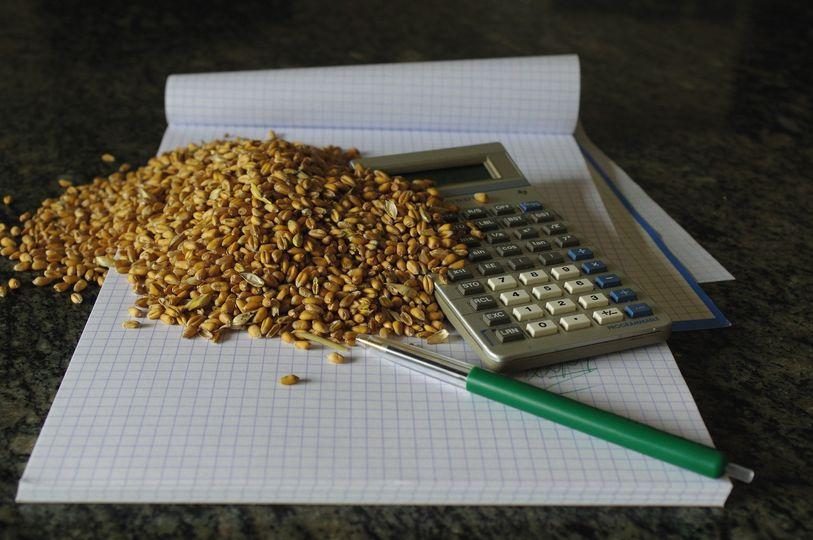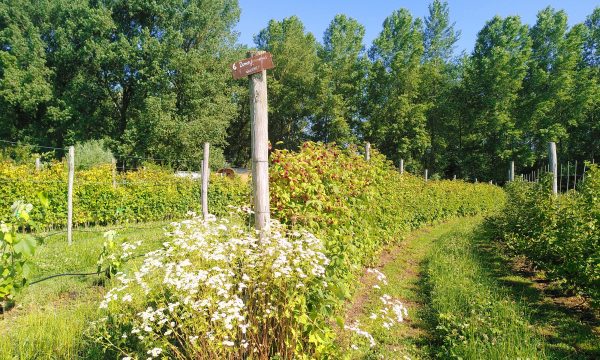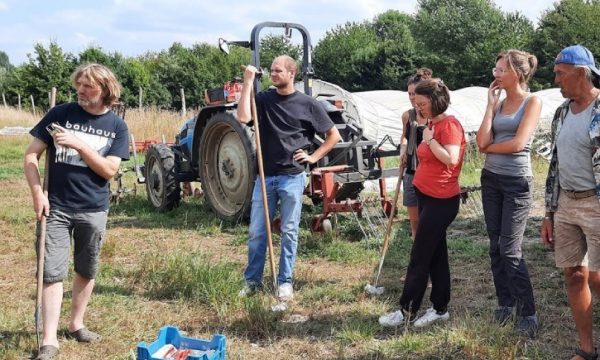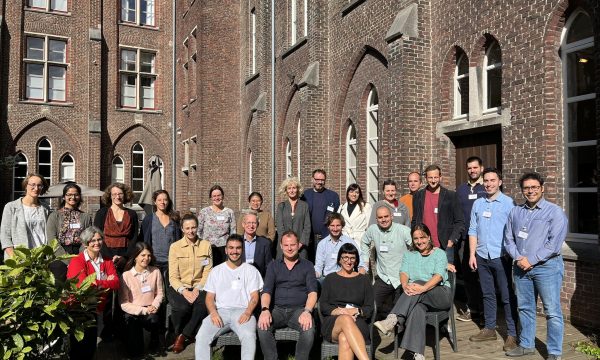Press release Seminar on "business models in agriculture" provides inspiration for several sub-sectors

Business models in agriculture can be optimized...
- if the agricultural entrepreneurs focus more on their market and customer,
- when they more consciously convert all their delivered 'values' into revenue,
- if they set up smart collaborations,
- and if they are going to compete over time on the basis of sustainability and quality of their products, rather than just aiming for cost efficiency.
This was said at the first ILVO seminar on 'Business models in agriculture', on Friday 30 October 2020.
Minister makes efforts to improve market position of agriculture
Flemish Minister of Agriculture Hilde Crevits emphasized in her opening speech that the world is changing rapidly. There are numerous challenges and also opportunities for farmers. Many signals, also from Europe, point in the direction of more sustainability, a new circular, bio-based agri-food chain and the increasing importance for the production of healthy food.
"We encourage agricultural entrepreneurs to respond to this, among other things by investing in knowledge, innovation and cooperation. The choice and freedom to decide will at all times lie with the farmer, but this must be made with sufficient knowledge and insight into possible business models".
Six external experts on proven earnings formulas
Paul Demyttenaere, director of the Roeselare REO auction: "Over the past 10 years, the market for the 1st range of lamb's lettuce (bulk) has shrunk to 20% of its original volume. Under the direction of REO, a number of producers have joined forces to supply a 4th range of lamb's lettuce (washed, packaged), and together they have grown to 200% of the original volume. Individually, no grower could have supplied this market. By working together, co-operators have secured their sustainable livelihood".
Tree nursery sector creates market scarcity around novelties via cooperative Best Select
ILVO Science Director Johan Van Huylenbroeck: "By working together, Best Select's co-operators have gained access to a series of unique ornamental tree nursery cultivars bred by ILVO. The member growers within the innovation cooperative can charge an additional price for these protected cultivars and at the same time attract customers for their other assortment of 'older' regular plants. On their own, the growers would never have had the budget and expertise for an extensive breeding program and for the marketing needed to make novelties known to garden architects and traders".
Inspiration from VLAM's market and consumer research on fresh produce
VLAM (Flemish agricultural marketing agency) director Filip Fontaine: "As a producer and (home) seller of fresh produce, it is good to weigh the cost benefits of a 'brand'. Setting up something like this is expensive and risky. People choose fresh food more often on the basis of sensory experience and less on the basis of brand. A brand can succeed if you bring something unique, preferably for a well-defined market segment".
Bancair market leader in agribusiness advocates greater economic awareness on the part of the farmer
Bart Verstrynge (Economist Agro at KBC): "Farmers should be more concerned with figures. That doesn't have to mean that they do the complete bookkeeping themselves, but that they do have insight into their financial situation. A tip? Talk more about economic key figures than just technical ones. For example, use your feed balance, in addition to your feed conversion figure, to compare your company's performance with that of colleagues.
Focus on the person who pays your invoices…not the end consumer?
ING Director (Food & Agri) Willem ter Heerdt: "Farmers who sell to a processor or middleman are best advised to study the underlying wishes of this customer through regular contacts. This ensures that their delivered product is tailored just a little bit better to their desires, possibly resulting in a better price. It's true that farmers are sometimes stuck with their investment and are therefore not able to switch to a completely new agricultural activity. But they can choose who their customer is! You don't have to deliver to the village's cattle ranch for the rest of your life".
Milk Trading Company raises 10% extra revenue, via international futures market
United Experts director Dirk Coucke: "The futures market is a financial market where future contracts are concluded. DLV (United Experts) does this for the cooperatives of the Milk Trading Company. The futures market is a purely financial instrument where no physical milk is delivered. If profits are made on the futures market, the Milk Trading Company can pay extra money to its co-operators. If a loss is made (which could happen in the future), this means that the physical price of milk is higher than the desired price, and the co-operators can offset this loss from their peak income from the dairy farm".
ILVO farming VerdienWijzer (EarningsTool)… shown for the first time
ILVO showed for the first time the current status of the under-construction web tool 'VerdienWijzer' (Earnings Tool). This interactive VerdienWijzer will make it clear to the agricultural entrepreneurs that their customers do not (only) pay for a product, but for delivered value.
ILVO researcher Edward Belderbos: 'The VerdienWijzer analyses the underlying value(s) delivered for each possible sub-activity of an agricultural farm or company. Take an example from the short chain: pick-it-yourself farms. Customers appear to be looking for an experience, they want to experience the pleasure of sowing and harvesting. That in itself is a marketable value. So a pick-it-yourself farm excels by working on that experience: create a pleasant appearance with little resistance, easy access to tools, room for children to play, etc., then you distinguish yourself from other initiatives that respond to that desire for value".
VerdienWijzer users use simple selection criteria to discover which adjustments to their current earnings model are most logically within reach, and which values match their personal motives (‘what gives you energy?') and those of their (intended) customers.
The VerdienWijzer will be launched in the summer of 2021.
Resilience as an object of study and as an ambition of the policy
ILVO researcher Olivier Guiot: “Both entrepreneurs and policy aim for a balance between efficiency and resilience. If companies focus too much on efficiency alone (with monocultures, economies of scale), their vulnerability to shocks (such as corona) increase. Companies that rely solely on resilience (with multiple diversification) result in low profitability and stagnation. A healthy balance leads to a future-proof system“
SALV secretary Koen Carels: “SALV points to the inherent vulnerabilities of the agricultural sector. The risks of working with living material, weather influences, global price volatility, etc. are shared responsibility between the farmers themselves on the one hand and the agri-food chain and policy on the other hand.“
Conclusion
Developing knowledge about earning models is an ambition contained in the Flemish coalition agreement. With the online seminar (October 30, 2020) 'Verdienmodellen in de Vlaamse Landbouw' (‘Business Models in Flemish Agriculture’) and the currently under construction VerdienWijzer, ILVO contributes to the realization of this ambition.
The registrations show that many people are interested in the answer to the question of how farmers can make a transition to more secure livelihoods and a more stable income. There are various ways to achieve this.
Minister Hilde Crevits: ‘Insight into costs, revenues, margins, ... are essential to build a good business model. That applies to all businesses, including our farmers and horticulturalists. With the study day, we're shifting up a gear towards knowledge, insight and exchanging experiences in the field of sustainable business models in agriculture and horticulture.’


